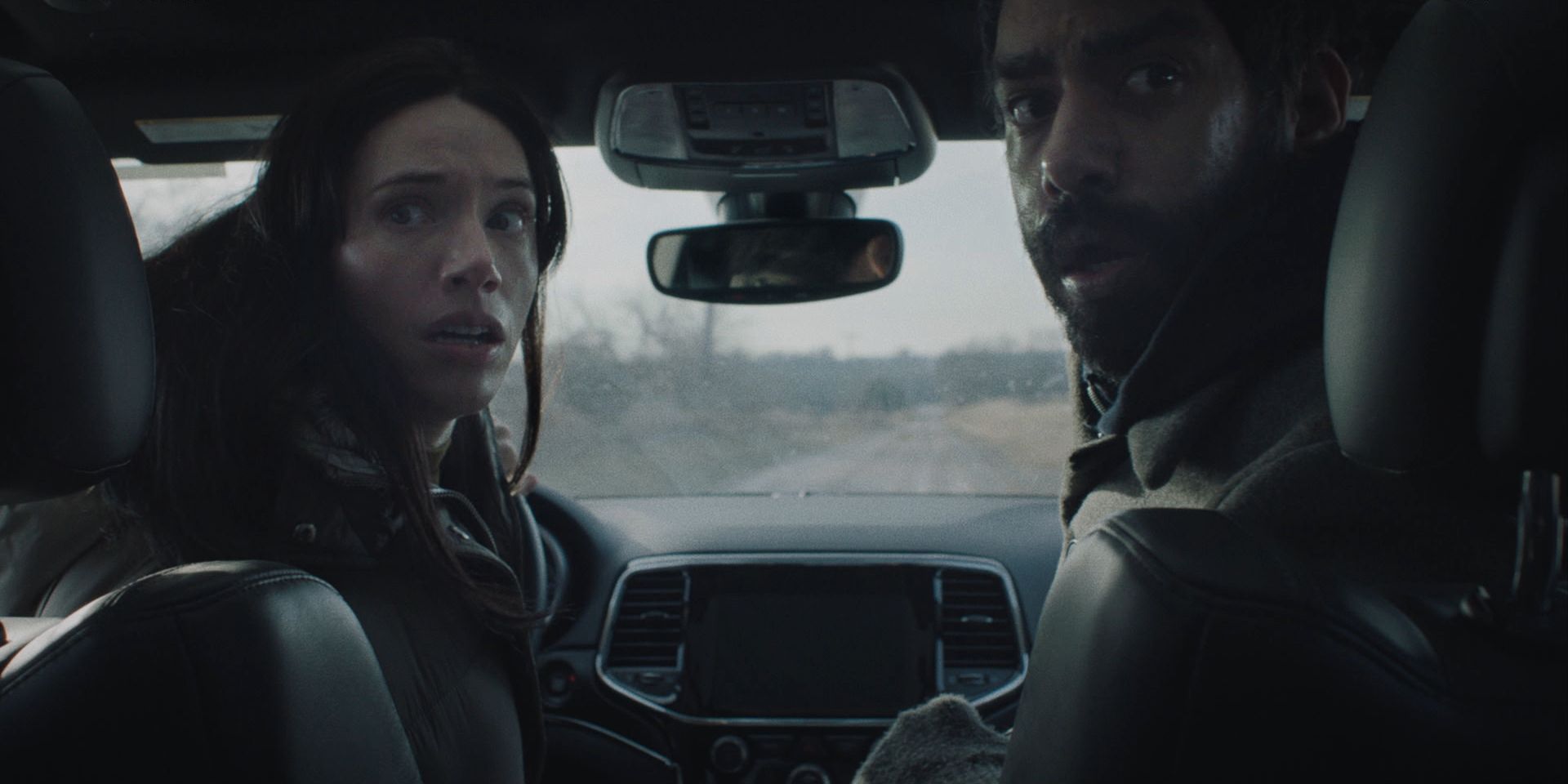
Ghosts have given the horror genre some of its best films. The Conjuring series, Poltergeist, and The Others, to name a few. The paranormal doesn’t only live within horror either. Comedies like Blithe Spirit and romance films like Ghost explore different sides to these mysterious entities. Mali Elfman’s debut feature, Next Exit, feels like a fresh entry on a very long list, as it explores one of humanity’s biggest unknowns in a different way. Is death simply just a transition to another existence? And does our consciousness truly continue beyond our physical body? These are the questions that Next Exit tries to answer.
Azuli Anderson’s camera and Ariel Marx’s score suck the audience into what feels to be your regular paranormal story. The camera slowly pans towards a slightly open door. The bit of light coming through isn’t enough to illuminate the pitch-black abyss that surrounds it. The score of the violin intensifies the closer the camera gets to it. Then, the camera moves around a bed like a monster ready to pounce. You’re unsure what will happen to the boy that lies in that bed, but you couldn’t have expected him to wake up and start playing cards with his dead father’s ghost. This moment was recorded and released to the public as part of the controversial “Life Beyond” study being conducted by Dr. Stevenson (Karen Gillan). The scientist and her team of researchers have been able to see, track and record the afterlife, but they’ve been met by pushback from congress over how this is done: It takes volunteers to agree to end their lives in order to be studied.
The film follows two of those volunteers, Rose (Katie Parker) and Teddy (Rahul Kohli), who have signed up to be Dr. Stevenson’s next test subjects. This wasn’t supposed to be a buddy road trip kind of deal, but after some issues getting their own rental car, they have no choice but to go together. They’re not happy about it, of course. Who wants to drive across the country with someone you don’t know or particularly like? In this awkward scenario, Kohli brings humor, while Parker makes Rose out to be standoffish. But there’s a reason for the latter: Rose is haunted, both by her past and by a dark spirit that follows her. She’s hoping, with Dr. Stevenson’s help, that she’ll be able to communicate with it and find closure.
While the film takes place mostly in a car, the dialogue includes interesting getting-to-know-yous and entertaining banter. Both characters suffer from depression and the script incorporates open and honest conversations about suicide. Their self-destructive tendencies, sins, and regrets are laid out, and they slowly create a relationship built on understanding. They are two broken people. Rose is willing to die because she has lost everyone, and Teddy is willing to die because he has no one. Rose realizes, after some hesitancy, that she’s going to have to accept and be open with Teddy in order to get through her exit. However, as they get closer to their final destination, both find what they have been missing in their lives and begin to doubt if they’ve made the right decision.
Next Exit boasts powerful performances portraying two people struggling with being alive and also with the decisions they are about to make. Elfman somehow manages to present a tone that’s both light and fun and incredibly dark at the same time. Death is terrifying because we have no control over it. In Next Exit, our leads do have control and can decide when to die on their own terms, turning the film into a contemplative text about our very existence.



